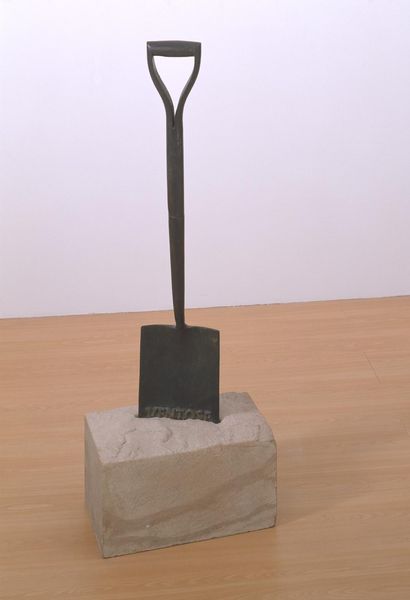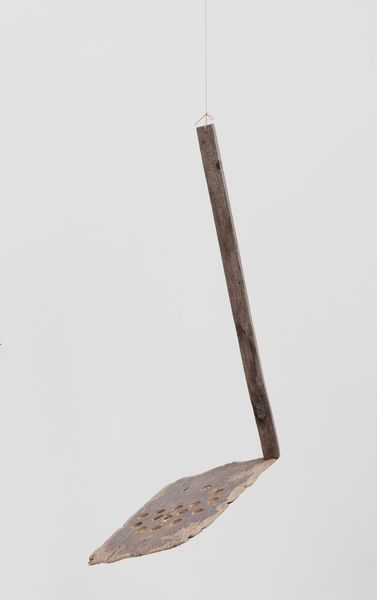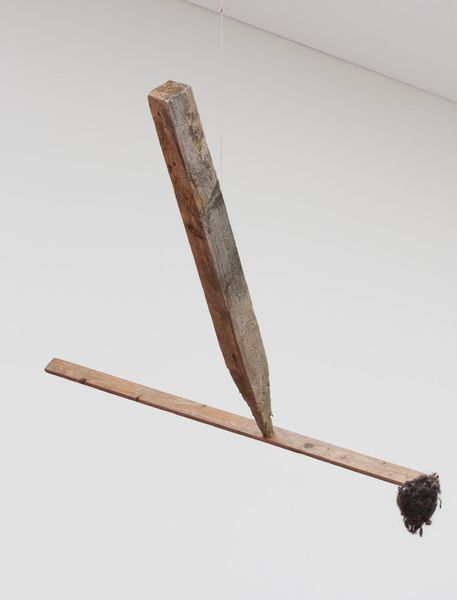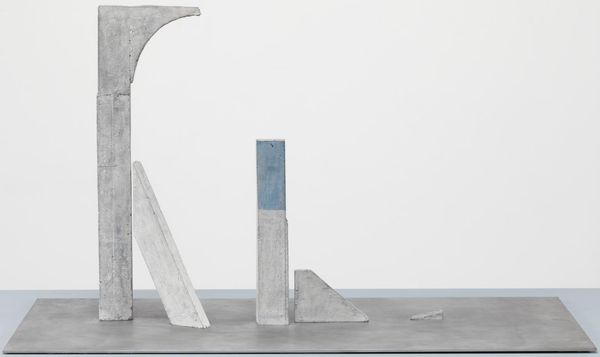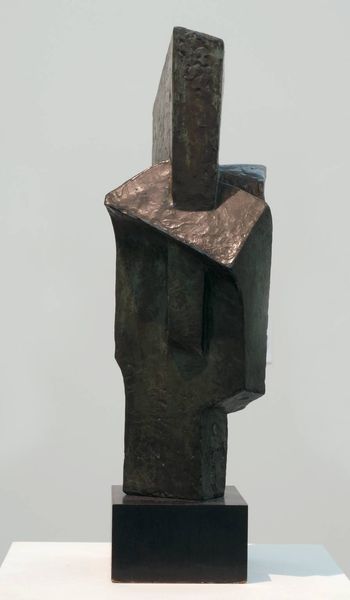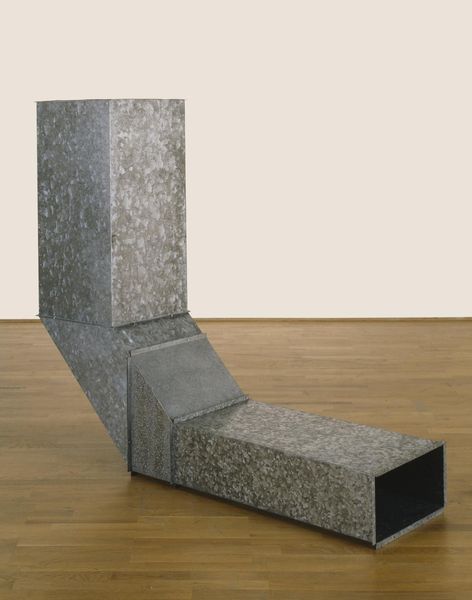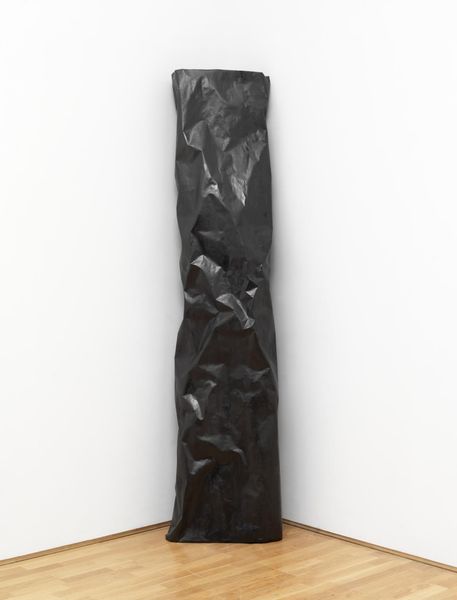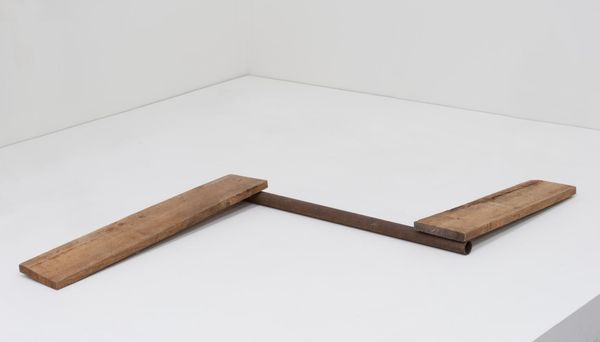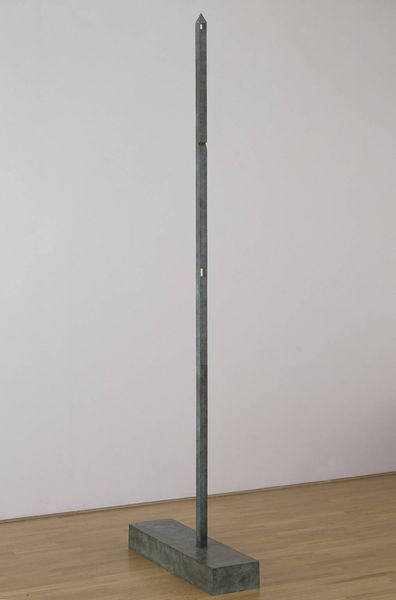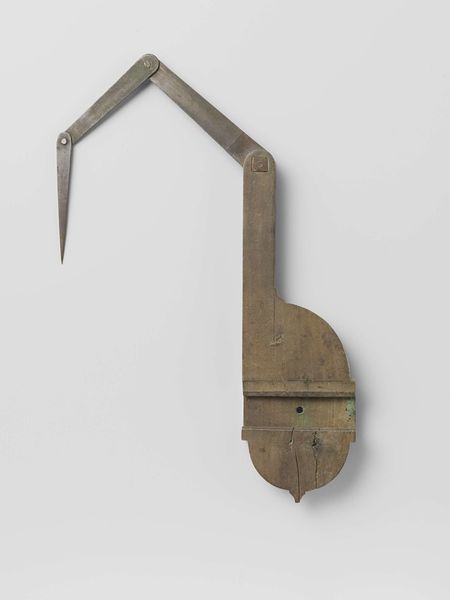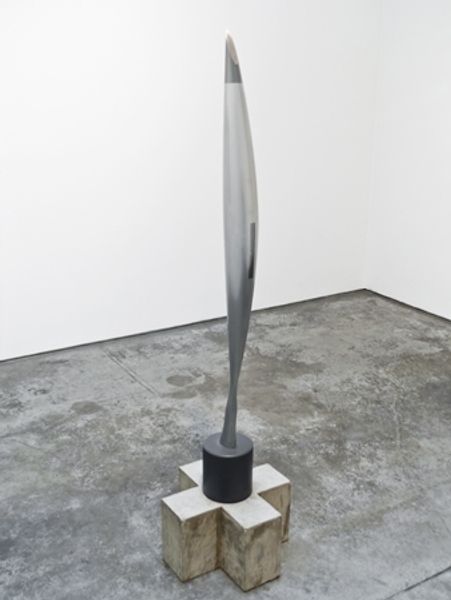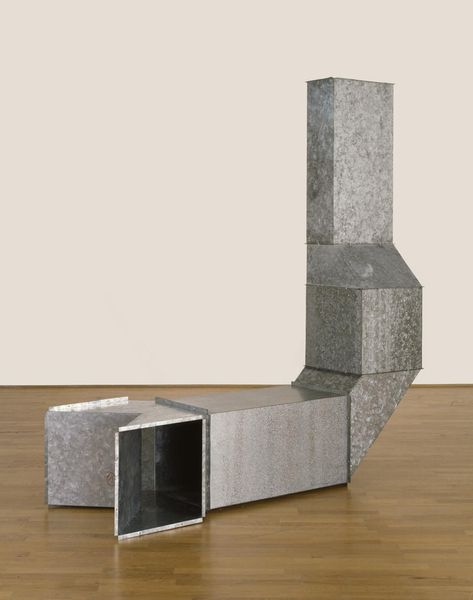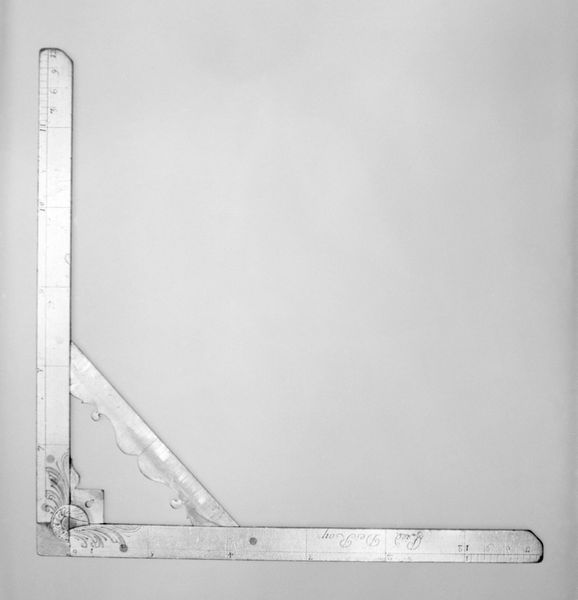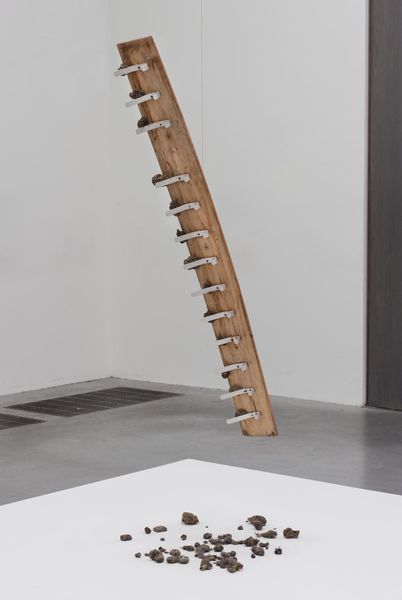
Dimensions: displayed: 2500 x 2035 x 800 mm
Copyright: © ARS, NY and DACS, London 2014 | CC-BY-NC-ND 4.0 DEED, Photo: Tate
Curator: Richard Serra, born in 1938, challenges our perception of space with his large-scale sculptures, often using industrial materials. This one, at the Tate, is called "Shovel Plate Prop," consisting of steel elements. Editor: Stark! My first impression is one of industrial brute force. It seems incredibly simple, but also strangely unsettling. Is it stable? Curator: The piece embodies the principles of minimalism, where the focus is on the physical properties of the materials themselves. Serra's work frequently questions the relationship between material, gravity, and space. Editor: Yes, I see echoes of archaic tools here, maybe hinting at foundations, construction. Its sheer mass evokes something primeval, even mythic, but with an unmistakably modern bleakness. Curator: Serra's manipulation of industrial materials removes them from their usual contexts, forcing us to consider their inherent qualities. Editor: Well, its starkness leaves a lingering feeling of unresolved tension. Curator: A fitting response, given Serra's aims! Editor: Indeed.
Comments
tate 10 months ago
⋮
http://www.tate.org.uk/art/artworks/serra-shovel-plate-prop-t01728
Join the conversation
Join millions of artists and users on Artera today and experience the ultimate creative platform.
tate 10 months ago
⋮
Serra began to use lead in 1968 to enact sculptural processes such as rolling, tearing, and casting. However, he grew concerned that the finished works were mere records of the forces that formed them. He began to explore ways of making sculptures where forces continued to be at work at every moment of their existence. The two elements of Shovel Plate Prop push against one another in tension, the roll and sheet keeping one another in place. Propping is continuously active whenever the sculpture is installed. Gallery label, April 2009
